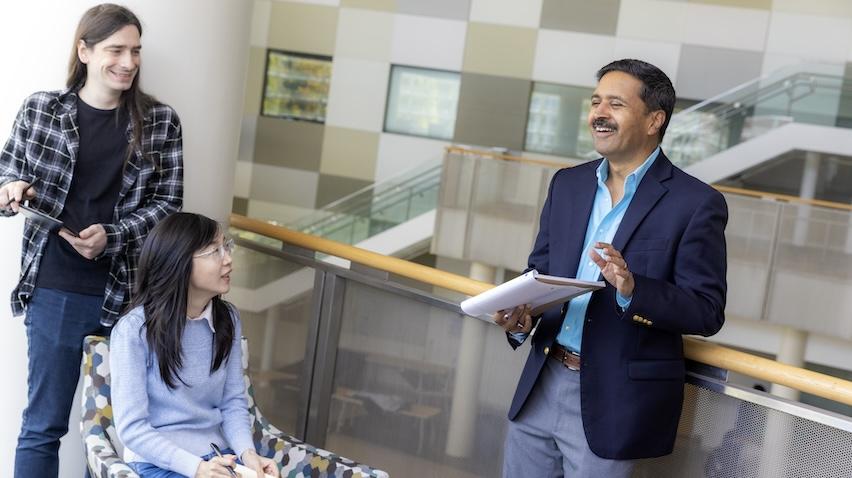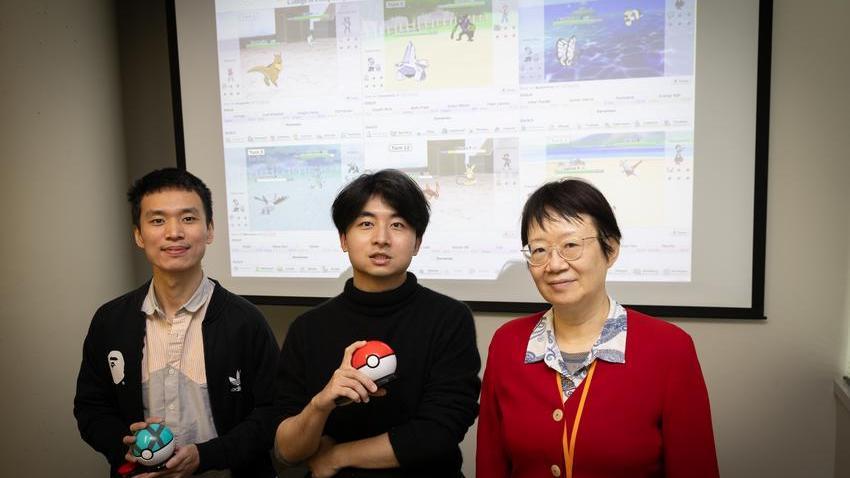
NSF Funds CRA Postdoctoral Fellowship Program to Bridge Job Market Gap
Many Ph.D. students will have difficulty finding academic jobs in the upcoming recession. To keep the research pipeline flowing, the Computing Research Association (CRA) has launched the Computing Innovation Fellows (CIF) 2020 program.
The program will fund at least 49 postdoctoral fellows in computing for a two-year career development experience. The National Science Foundation is funding the initial $16.8 million initiative.
Reviving the program
School of Computer Science Professor Ellen Zegura is the principal investigator (PI) on CIF 2020. As the chair of the CRA Board of Directors, Zegura said they anticipated that the COVID-19 pandemic and its economic fallout would impact graduating Ph.D. students, and have downstream effects on the U.S.’s computing research ecosystem.
“In late March and early April, CRA gathered data on how many academic departments were curtailing hiring to understand the scope of the problem,” she said. “Even at that time, this this led us to understand that many faculty positions were being pulled. We were wondering whether there was something CRA could be doing to be responsive to COVID-19.”
In response to the 2008 recession, CRA did something similar, funding more than 100 postdoctoral fellows and helping to popularize the fellowship model.
“This postdoctoral fellow idea bubbled up again because the circumstances were quite similar to 2008, but more drastic and quite sudden,” Zegura said.
This iteration of the program is also more flexible. Students can stay at their current institution but partner with a different advisor or work virtually with a mentor at a different university.
Matching researchers
Each candidate will identify a potential faculty mentor and can submit for the fellowship with up to two. There is a limit of two fellows and two mentors per institution to ensure this opportunity is spread across computing departments.
Although the NSF award has five PIs and a steering committee, there will also be a selection committee. These 8-10 faculty members broadly covering core computing research areas and will determine the matches.
Yet, according to Zegura, the goal is more than just bridging the job market gap. Each mentor and student pairing will plan a research topic and other ways the candidate can grow professionally, such as grant writing, teaching, or supervising junior students.
“This is supposed to be a time of growth,” Zegura said. “The postdoc experience really helps the person further the career.”
Application process
The application process is similar to faculty hiring processes to make it easy on applicants. Applicants will be required to submit: a research statement and plan, a mentoring plan written collaboratively with their proposed mentor, a curriculum vitae, and a few letters of recommendation. Students must be a U.S. citizen or permanent resident or have received a Ph.D. from a U.S. institution.
As with all CRA endeavors, increasing diversity in computing will be important in the selection process, Zegura said. The selection committee will consider under-represented minorities in computing —including women and racial and ethnical minorities — and geography, such as rural versus urban areas.
“This is a great example of what CRA can do well,” Zegura said. “We feel so good about being able to do something for the community and do something that’s responsive to COVID-19.”
We are thrilled to announce Vivek Sarkar as the new Dean of the College of Computing at Georgia Tech! With a distinguished career spanning academia and industry, Sarkar's leadership promises to elevate our community to new heights. https://t.co/2mX5D46cJz pic.twitter.com/LxpLTCXWZV
— Georgia Tech Computing (@gtcomputing) April 12, 2024
@GeorgiaTech's dedication to excellence in computer science (CS) has been recognized once again, with the latest U.S. News and World Report rankings unveiling the institution at 7th place overall for graduate CS studies.https://t.co/qavNUSTb7n pic.twitter.com/BcGyGBQld8
— Georgia Tech Computing (@gtcomputing) April 10, 2024


